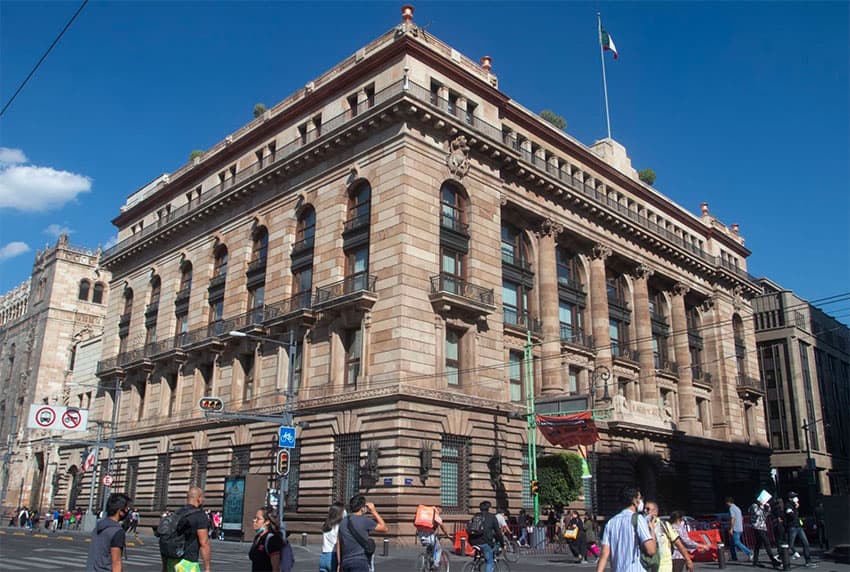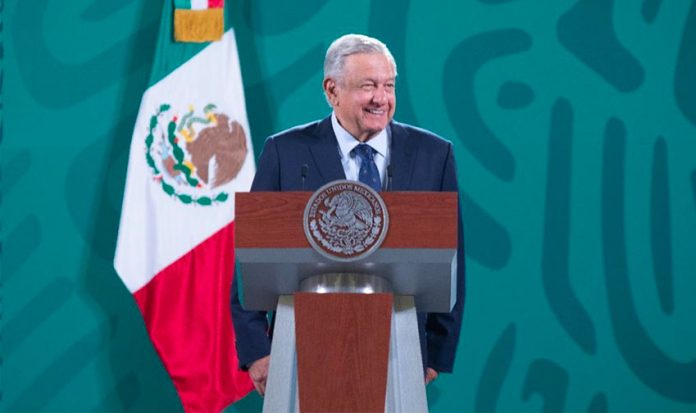Andrés Manuel López Obrador’s name will not be on the ballot when voters pick state governors, deputies to the lower house, mayors and thousands of other local positions on Sunday in what both he and his critics agree will be a watershed vote.
Even so, the populist president, elected in a landslide in 2018 on the back of widespread disgust at endemic corruption, still has plenty riding on the election, with it being widely seen as an unofficial referendum on his leadership.
For López Obrador, the midterms are a chance to prove “that things are changing, that there’s a transformation [under way],” as the 67-year-old nationalist said this week. For critics, the changes so far have not been for the better — and could become worse.
“This is not a routine election,” said Alfonso Zárate, a consultant and former presidential spin-doctor who recently published a book about López Obrador entitled The One Man Country. “We’re facing the possibility of hurtling toward disaster.”
Over the past three years, López Obrador has presided over murder rates that remain near record highs, no obvious reduction in corruption, one of the world’s biggest Covid-19 death tolls, and economic growth still well below pre-pandemic levels.
Even so, largely thanks to a fragmented opposition and high personal popularity ratings that stand at about 59%, polls indicate he will emerge, if not strengthened, then emboldened from the election — a rare feat in midterms, when incumbents usually suffer losses.
His Morena party is expected to cement its place as Mexico’s most popular political force. Alongside its allies, Morena is forecast to hold 322 seats in the 500-seat chamber of deputies, just shy of its current 334 seats, which it needs for a supermajority to pass constitutional changes.
The vote is for all 500 lower house deputies, 15 state governorships, almost 2,000 mayors and thousands of other local positions.
As for Mexico’s powerful state governorships, Morena currently has six and could win seven or more, pollsters say, potentially commanding almost half of Mexico’s 32 states. No seats in the Senate, where the ruling coalition lacks a constitutional majority, are in play.
For critics, the prospect of these results makes the poll a pivotal moment. López Obrador has always said he would use the first half of his six-year term to lay the foundations for a national transformation as epoch-making as independence from Spain, 19th-century reforms or the Mexican Revolution — and then get down to reforms in earnest in his last three years.
“Security is the worst we’ve seen, there’s the pandemic, economic decline and a rise in poverty … and yet we’re going to get the same vote totals as [the election] three years ago,” said Federico Estévez, a political science professor at Mexico’s ITAM university.

One reason for what otherwise might seem a counter-intuitive result is Mexico’s Covid-19 vaccination drive, in which one in four adults have had at least one shot. As a result, the government is not expected to lose much electoral support, despite the high levels of insecurity that have led to the murder of 35 candidates during the campaign.
“It’s a bit like the Trump election,” said Joy Langston, a professor of political science at CIDE university. “No matter how bad the president is, you still have people who love him literally no matter what.”
Three scenarios worry investors if López Obrador and his party do as well as expected.
The first is if he meddles with Mexico’s respected central bank, which the president has said should be run by a “moral” economist. The second is changing the Supreme Court, where López Obrador has already backed a controversial two-year extension to its chief judge’s term — a move that critics warn could set a precedent for him to try to prolong his own presidential mandate.
And the third is if he finally kills off Mexico’s energy reform, passed by the previous government and which allowed private ownership in the sector, via a public consultation process. López Obrador has already scrapped Mexico City’s partially built airport after such a “people’s poll.”
Some of those fears may be overdone. Brokerage Grupo Bursátil Mexicano believes López Obrador had already rattled through almost three-quarters of the reforms he floated in his book-cum-manifesto The Way Out, published before the 2018 election.
“Most of the aggressive actions that were meant to go against the status quo and the market sentiment have already happened,” it wrote.
In fact, given the close governorship races in many states and the president’s constant attacks on his political opponents, for many the bigger immediate fear is that López Obrador challenges unfavourable results or even tries to scrap the electoral authority, INE, which he has said he does not trust.
That is why businessman Javier Olavarrieta hopes for just one thing at Sunday’s election: unequivocal results. “Let’s hope there’s a big difference between the winners and losers,” he said.
© 2021 The Financial Times Ltd. All rights reserved. Please do not copy and paste FT articles and redistribute by email or post to the web.
